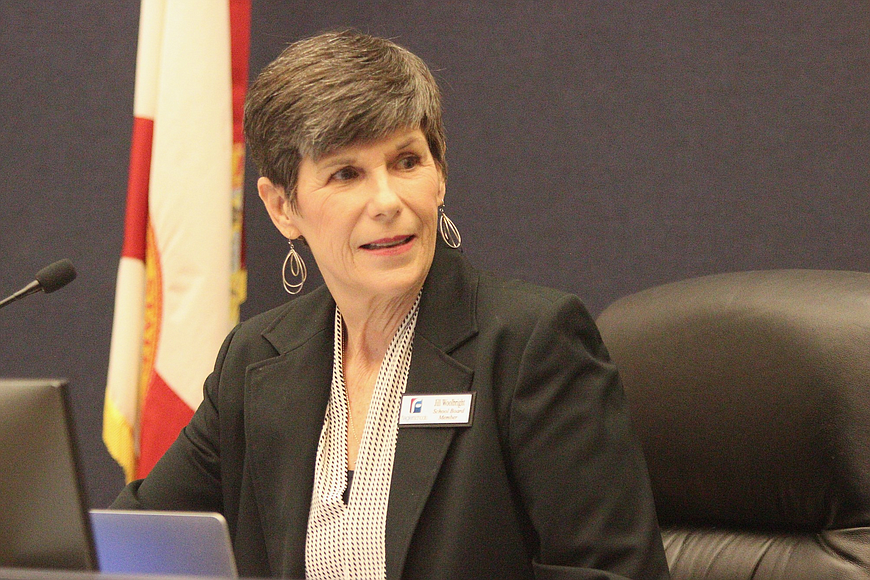- January 15, 2025
-
-
Loading

Loading

Currently, the Flagler County School Board policy regarding “Boycotts, Walkouts, Sit-Ins and Other Disruptive Acts” is one sentence long.
In light of the walkouts by Flagler Palm Coast and Matanzas high school students on March 3 protesting Florida’s Parental Rights in Education bill, the board wanted to to have a more detailed policy that protects students rights to free speech while providing consequences for acts that disrupt the educational environment.
A draft presented by board attorney Kristy Gavin at the board’s May 3 agenda workshop was too detailed, according to board member Janet McDonald, and not detailed enough, according to Jill Woolbright.
Colleen Conklin felt it provided the right balance between protecting students’ freedom of speech while maintaining a continuous learning environment and providing consequences for disruptive acts.
The policy draft states, “While the district recognizes and respects a student’s freedom of speech rights, these rights may not infringe on the rights of others or interfere with the orderly operation of the schools.”
It says the superintendent shall develop procedures for school administrators to follow, and students who fail to follow school directives or district policy may be subject to disciplinary action. Any student demonstration would have to be approved in advance regarding time, place, duration and manner restrictions. Also, district employees shall not promote, endorse or participate in any student demonstration of distribution of materials.
McDonald said she would like to see walkouts simply prohibited during school hours.
“Freedom of speech to me is not freedom of movement, freedom of use of curriculum time or use of school facilities. I don’t believe that’s freedom of speech,” she said. “Our purpose is not to support activism, to take time out of the school day to promote their idea.”
McDonald said the March 3 walkout “was the worst thing that could be done, because it demonstrated that the students had no idea what they were supporting. Where is a walkout in our curriculum? That is not free speech. That’s free action.”
Conklin said, “I don’t think the topic of this particular walkout should be what we are debating. I think we should be discussing policy and parameters.”
Woolbright said she thought the half-page draft doesn’t say enough.
“It gives way too much reign with very little parameters as to what the consequences are,” she said.
“Teachers should stay out of it. It should be totally student choice. I think the public view was it was highly encouraged in the past. I think they should strictly stay out of it.”
JILL WOOLBRIGHT
Woolbright said she would like to see the policy state that employees should not encourage or discourage student participation.
“Teachers should stay out of it,” Woolbright said. “It should be totally student choice. I think the public view was it was highly encouraged in the past. I think they should strictly stay out of it.”
She also said she’d like to see students sign a contract agreeing to specific consequences if a procedure is not followed or a protest becomes disruptive to the educational process.
Conklin said she believes a school district can restrict freedom of speech when a protest becomes disruptive or lude or promotes drugs or illegal activities.
Board Chair Trevor Tucker said he agreed that the policy should specifically disallow demonstrations that are lude or promote alcohol, violence or illegal activities.
The board agreed to add the suggestions and vote at the next board meeting to advertise the policy and then discuss additional changes.